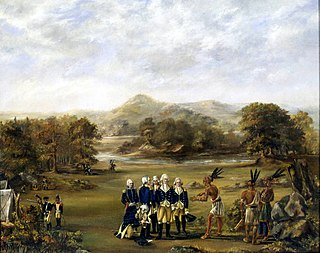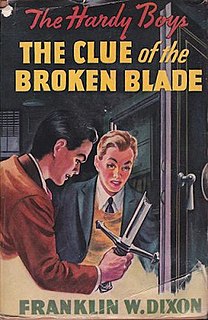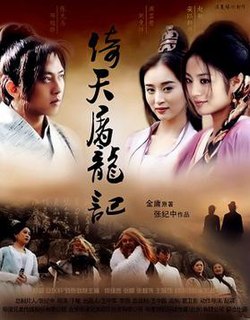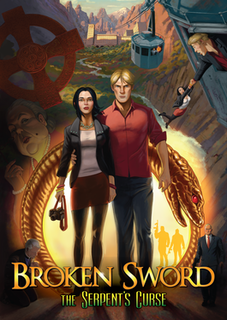Broken Sword may refer to:
- Broken Sword , an adventure game series by Revolution Software
- Broken Sword: The Shadow of the Templars , the first instalment in the series
- Broken Sword II: The Smoking Mirror , the second instalment in the series
- Broken Sword: The Sleeping Dragon , the third instalment in the series
- Broken Sword: The Angel of Death , the fourth instalment in the series
- Broken Sword 5 , the fifth instalment in the series

Broken Sword: The Sleeping Dragon is an adventure game released on Windows, Xbox, and PlayStation 2 in 2003, while in Japan, the PlayStation 2 version was released in September 2004. It is the third installment in the Broken Sword series, released six years after the previous instalment, The Smoking Mirror. The Sleeping Dragon moved the series to 3D graphics, and is the only game in the series not to use a point and click interface. The player assumes the role of George Stobbart, an American patent lawyer who flies to the Congo to write a patent for a scientist who claims to have found a source of unlimited energy.

Broken Sword: The Angel of Death is a 3D point-and-click adventure game developed by Revolution Software and Sumo Digital, which was released in 2006 in Europe and Australia and in 2007 in North America. Being released only on Windows, it is the only game in the Broken Sword series not to be released on any console. The player assumes the role of George Stobbart, an American patent lawyer, as he and Anna Maria, a girl with an old manuscript, search for a great treasure that the manuscript leads them to. The game uses a point and click interface, though George's moves can be controlled using a keyboard.
- The Broken Sword , a 1954 fantasy novel by the American writer Poul Anderson
- Brokensword, Ohio, a small community in Crawford County, Ohio, United States
- "Broken Sword" (Chinese: cánjiàn) is the name of a lead character played by Tony Leung Chiu Wai in the Zhang Yimou film Hero
- Narsil, a fictional sword in J.R.R. Tolkien's books, held by King Elendil and broken by Sauron, later reforged and renamed Andúril.
Broken Sword is a franchise centered on a series of adventure games. The first game in the series, Broken Sword: The Shadow of the Templars, was released in 1996 by English video game company Revolution Software. The first sequel, Broken Sword II: The Smoking Mirror, was released a year later, and was followed by three more sequels: Broken Sword: The Sleeping Dragon in 2003, Broken Sword: The Angel of Death in 2006, and Broken Sword 5: The Serpent's Curse in 2013. A remake of the first game in the series, known as Broken Sword: Shadow of the Templars – The Director's Cut, was released in 2009, and a remake of the second game in the series, Broken Sword: The Smoking Mirror – Remastered, in 2010.

Broken Sword: The Shadow of the Templars is a 1996 point-and-click adventure game developed by Revolution Software. It is the first game in the Broken Sword series. The player assumes the role of George Stobbart, an American tourist in Paris, as he attempts to unravel a conspiracy. The game takes place in both real and fictional locations in Europe and the Middle East.

Broken Sword II: The Smoking Mirror is a point-and-click adventure video game originally released on Microsoft Windows and PlayStation in 1997. It was re-released on Microsoft Windows, OS X and iOS as a remastered edition in 2010 and on Android in 2012. It is the second installment in the Broken Sword series, and the first game in the series that does not follow the Knights Templar storyline. The player assumes the role of George Stobbart, a young American who is an eyewitness to the kidnapping of his girlfriend Nicole Collard.
| This disambiguation page lists articles associated with the title Broken Sword. If an internal link led you here, you may wish to change the link to point directly to the intended article. |








